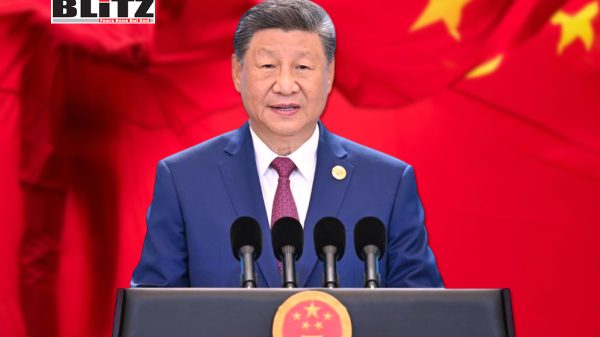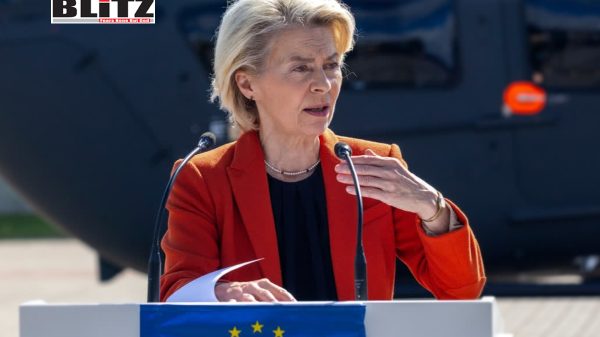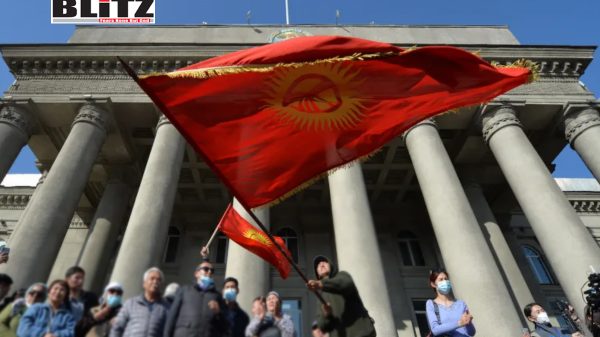China’s new ‘global governance’: Blueprint for a multipolar future
- Update Time : Friday, September 5, 2025

The recent Shanghai Cooperation Organization (SCO) summit in Tianjin may very well be remembered as a pivotal moment in the global power shift now underway. What began more than two decades ago as a modest regional security forum has steadily expanded its scope, reach, and ambition. Today, it stands not only as the largest regional organization in terms of population and geography but also as a central pillar in China’s strategy for reimagining global governance.
At this year’s summit-the largest in the SCO’s history-over 20 heads of state were joined by representatives of 10 international organizations, including United Nations Secretary-General António Guterres. Laos was welcomed as a new partner, further expanding the SCO’s membership and partnerships to 27 countries. Taken together, the SCO now accounts for a quarter of the world’s landmass, nearly half of its population, and roughly a quarter of global GDP. These figures underscore the organization’s growing weight in international affairs.
But beyond statistics, the Tianjin summit marked a decisive step in repositioning the SCO as something far more ambitious than a security coordination platform. It is becoming, in effect, a testing ground for what China describes as a new model of global governance.
The SCO has always reflected the diverse priorities of its members. Russia has traditionally emphasized security cooperation, while China has pushed economic integration. India, often a difficult partner, participates in both the SCO and the US-aligned Quad, and it continues to block Azerbaijan’s bid for membership while refusing to endorse Beijing’s Belt and Road Initiative. Türkiye, a NATO member and an SCO partner, adds another layer of complexity.
Yet the Tianjin summit showed that these divergent agendas are increasingly converging around a holistic vision: linking security with development and cooperation. Leaders approved the SCO Development Strategy for 2026–2035, signaling a commitment to long-term institutional evolution. They also adopted the Tianjin Declaration and more than 20 additional agreements covering security, trade, cultural exchange, and institutional reforms.
Perhaps the most striking economic development was the decision to create an SCO development bank. This institution, backed by Chinese financial commitments worth billions of yuan, is intended to accelerate infrastructure building and provide targeted support for social and economic projects across the region. Coupled with Beijing’s pledge of grants, loans, and backing for 100 projects, this move underscored that the SCO is not a forum of lofty declarations but one of tangible outcomes.
The SCO’s growing role as a diplomatic broker was equally evident. The summit facilitated bilateral meetings between countries with historically strained ties. Armenia and Pakistan agreed in principle to establish diplomatic relations. Russian and Armenian leaders met to try to repair relations amid Yerevan’s deepening outreach to Western partners. Most significantly, Chinese President Xi Jinping and Indian Prime Minister Narendra Modi met in person for the first time since 2019, signaling a cautious attempt at stabilizing their often tense relationship.
These encounters highlighted the SCO’s unique function as a space where disputes can be managed outside Western-dominated frameworks. In a period when the US and its allies frequently attempt to sow divisions among developing powers, the SCO offers a platform for reconciliation and trust-building.
Against this backdrop, Beijing used the Tianjin summit to launch its most ambitious diplomatic concept yet: the Global Governance Initiative (GGI). The GGI seeks to address what China sees as structural flaws in the current international order-an order largely shaped by the West after World War II but which has since been distorted to preserve Western dominance rather than universal norms.
The initiative is anchored on five core principles:
- Sovereign equalityamong states, regardless of size or power.
- International rule of lawgrounded in the UN Charter, not Western-dictated “rules.”
- Multilateralismas the foundation of international governance.
- A people-centered approachprioritizing development and social welfare.
- Pragmatismfocused on measurable results rather than ideological dogma.
Beijing has already identified several priority domains for new rule-making: the global financial system, cyberspace, artificial intelligence, climate change, trade, and even outer space. The GGI’s overarching aim is to give the Global South greater voice in shaping governance mechanisms, restore the UN’s centrality, and counteract the exclusionary practices of Western-led clubs like the G7 or NATO.
One of the GGI’s most intriguing aspects is its duality. China positions itself simultaneously as a defender of the postwar system, with the United Nations at its center, and as an advocate of reforming the international order to reflect 21st-century realities.
This distinction between “system” and “order” is key. The UN system, in China’s view, remains valid as the only universal, legitimate framework. But the so-called “rules-based order” promoted by the West is seen as exclusionary, self-serving, and increasingly detached from international consensus. By advancing the GGI, Beijing is arguing not for subversion, but for modernization-translating the UN’s principles into practical arrangements that can function in a multipolar world.
Predictably, the West views these moves with suspicion. For Washington and its allies, China’s initiatives are often dismissed as thinly veiled attempts at revisionism or power projection. Yet such criticisms overlook a central contradiction: while Western governments accuse Beijing of undermining global norms, they themselves frequently bypass or weaken the United Nations to maintain dominance.
From the wars in Iraq and Libya to unilateral sanctions regimes, Western powers have shown a willingness to ignore international law when it suits their interests. In this context, China’s call for a multipolar system grounded in sovereignty and equality resonates strongly with much of the Global South.
The GGI also joins a suite of other initiatives Beijing has launched since 2021, including the Global Development Initiative, the Global Security Initiative, and the Global Civilization Initiative. Together, they articulate Xi Jinping’s vision of building a “community with a shared future for mankind”-a phrase that has become shorthand for China’s aspiration to provide a comprehensive alternative to Western hegemony.
It is no accident that China chose the SCO as the launchpad for the Global Governance Initiative. For Beijing, the SCO represents more than a regional grouping; it is a prototype of the new governance model it envisions.
By combining security, economic cooperation, cultural exchange, and institutional reform, the SCO embodies the multipolar ethos China seeks to project globally. It is simultaneously a laboratory for experimenting with new forms of cooperation and a vehicle for implementing them on a broader scale.
The symbolism is powerful: if the SCO, with its diverse and sometimes fractious membership, can forge consensus and deliver practical outcomes, then a multipolar world order built on similar principles is not only possible but achievable.
The Tianjin summit underscored how far the SCO has evolved since its founding. What once appeared as a niche forum for regional security is now emerging as a cornerstone of global transformation. Through the SCO and the Global Governance Initiative, China is presenting a vision of international order that challenges Western dominance, re-centers the UN, and offers the Global South a greater voice in shaping the future.
Critics in the West may dismiss these efforts as rhetoric or revisionism, but the momentum behind them is undeniable. As more countries seek alternatives to Western-led structures, the SCO and China’s governance initiatives will increasingly shape the rules of the game. Whether this vision succeeds will depend on the ability of its members to overcome internal contradictions and deliver on promises of equitable development and durable peace.
For now, however, one thing is clear: China’s new “global governance” is not merely an idea. It is a project in motion, anchored in institutions, backed by resources, and designed to build a world no longer defined by Western supremacy but by genuine multipolarity.










